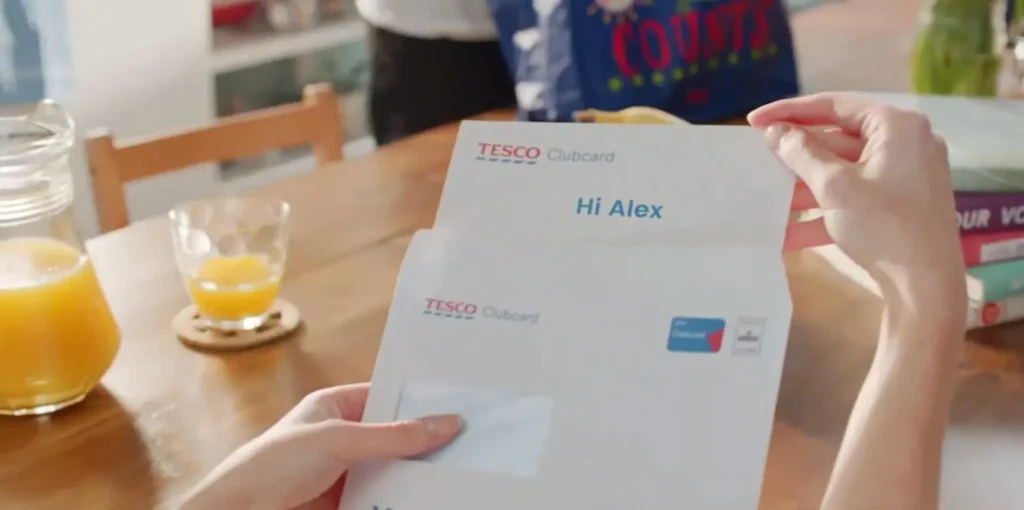Building trust with your customers is one of the most effective ways to retain customers long-term and benefit from their word-of-mouth referrals. Every business wants to score customers for life — and trust is key to locking in those relationships.
When a consumer trusts a brand, they’re more likely to:
- Purchase: 63% of consumers say they would buy a trusted brand’s new products and even buy from the brand when it’s more expensive than competitors.
- Stay loyal: 55% say they wouldn’t shop around for other brands, even if the brand makes a mistake or is accused of wrongdoing.
- Advocate: 53% would recommend the fully trusted brand to other people.
Building this trust has become even more crucial recently. According to Edelman, 71% of consumers say it’s more important to trust the brand they buy or use today than in the past. This trend is especially pronounced among Gen Z, with 79% emphasizing the importance of brand trust.
However, it’s clear that many brands struggle with fostering that sense of trust. A staggering 76% of consumers feel that brands often fail to engage them effectively because of a lack of relevance, while 51% believe that brands lack authenticity in their attempts to connect. This is where personalization helps.
Customers expect personalization, but they’re also concerned about how their data is being used. That means brands need to be responsible with how they go about creating these personalized experiences.
Personalization should demonstrate that you understand the individual’s needs and interests. It should be timely and two-way — meaning you’re reaching out at the right time and allowing an easy way for the consumer to connect with you. And as you’ll see in the examples below, it requires plain speaking and transparency. Another way to say this? Be human.
Here’s how companies across industries use personalization to build consumer trust.
Personalization and Consumer Trust in Banking
Transparency is important in all industries for a healthy business-customer relationship. But it’s especially essential when it comes to banking. In today’s economic climate, where inflation is a growing concern and consumer spending is tightening, people want to know that their finances are being handled by someone they can trust. And while trust in banks has increased slightly, maintaining that trust will require ongoing effort and clear communication.
When banking communications are personalized, it reinforces to customers that they’re valued and understood. They’re not “just a number.” This personal touch can ease anxiety during uncertain times and build long-term customer loyalty.
It’s easier than you might think to add personalized touches to your customer communications.
Take your cue from app-based banks that rely on personalization. One example is financial company Atom Bank, “a bank that’s all about you.” It’s hyper-focused on providing an individual experience, personalizing every element from start to finish. Whether it’s tailored financial advice or tailored mortgage plans, these efforts show customers that their financial goals are truly understood.
But you don’t need an app like Atom to leverage personalization that builds consumer trust in banking. Even small gestures, like including relevant personal details in communications or offering products based on their spending habits, can make a big difference.
In another example, JPMorgan Chase created a video that walks small business owners through how to use their new account. It includes the name of the small business, personalized tips for that business owner and more.
As a customer onboarding video, it’s also a great way to welcome the customer individually, starting the relationship off right to strengthen loyalty going forward. This personalized approach not only makes the customer feel valued from the beginning but it also sets them up for success, ensuring they fully understand how to use the bank’s services.
Insurance Gets Personal
A customer who doesn’t trust their insurance provider is 18x as likely to change carriers in the next 3 years as one who trusts their provider. For the insurance industry, trust is key.
Personalized communications can help increase engagement in insurance. And engaged insurance customers spend more and recommend their carrier more.
Engaged insurance customers:
- Purchase 22% more insurance products
- Stay customers 4 years longer
- Invest 3x more frequent investment in financial products
- Recommend their carrier 4x more often
And when it comes to personalization in insurance, “when” is almost as important as “who” — that is, timing is critical. You need to know who your customer is and what they need, but you should also take advantage of key moments to reach out to your customer with a personalized message.
Multinational insurance firm AXA put this principle to good effect by leveraging policy renewal reminders as an opportunity to engage customers. They sent an important video message to each customer directly about their plan. The video included the expiration date plus how they could add additional services or renew current policies with upgrades.
Why did these videos work so well? They combined clarity with convenience, making complex information easy to digest. The videos also increased engagement and revenue, thanks to the personalized cross-selling. The results were impressive:
- 3x higher CTR than any of AXA’s previous email marketing campaigns
- 8x uplift in conversion rates
- Videos watched 1.2 times on average
This success highlights the power of personalization in insurance — when done right, it not only enhances trust but also drives real business outcomes.
Personalize the Utilities Customer Journey
What about the utilities industry? How is consumer trust relevant here? It’s not the most obvious place for a strong brand-consumer relationship. After all, how many people you know talk about how much they love their electricity provider?
Think about what your consumer needs and how you can help them. You might explain new offerings or their latest bill. Perhaps you could give your customer a snapshot of their energy consumption — along with personalized tips for reducing energy use, which is good for their budget and the environment.
In other words, it’s not just about keeping the lights on — it’s about being transparent and empowering customers with the information they need to make informed decisions. Here are 2 examples.
American Water
This monthly statement video presents a customer’s water bill, explaining the billing structure and the customer’s water usage. It’s personalized, helpful and — because it’s a video — easy to understand. By simplifying complex information, American Water reduces customer frustration and builds trust through clarity.
National Grid
Showing customers you care about social and global issues like the environment is another way to build trust. According to the recent Trust Barometer report, 46% of consumers believe brands should do more regarding climate issues. Even more, 59% say that, even if 2 products are identical, there are brands worth paying more for because of the good they do in the world.
For utility companies, green initiatives are a natural choice. See how this video from National Grid gives customers a clear picture of their electricity use and explains how they can further decrease their use with a new eco-friendly heat pump.
By aligning with customers’ values, National Grid strengthens its relationship with them, demonstrating that they don’t just provide a service but also care about making a positive impact on the world.
Building Trust in Pensions and Retirement
People often dream of retirement, but their savings don’t always reflect that. Despite good intentions and big goals, when you’re bogged down in the day-to-day worries of life and work, it’s often hard to imagine what retirement will actually look like.
Imagine how personalization can change this. It can help people envision their future selves, showing them what saving for retirement actually means. By making retirement planning more relatable and less abstract, personalization encourages individuals to take action today for a more secure tomorrow.
See an example from BBVA below. By showing viewers a “message from their future self,” the company helped them see the direct impact of their financial decisions.
As you can see, personalization often draws on an emotional connection, especially in the pensions and retirement field. But clarity is just as important. Video is an effective tool here since it adds a human touch but also presents information in an easy-to-digest format.
Take the video below by Standard Life as another example.
It breaks down how much the individual has currently in their pension, how much they could have at their designated retirement age, how much they could get each year as guaranteed income for life and much more.
This approach helps demystify retirement, making it feel more achievable and within reach. And when customers can visualize their future and understand the steps needed to secure it, they’re more likely to trust and stay loyal to the brand guiding them.
How Transparency Builds Trust in Telecommunications
Just like with financial services industries, transparency helps build trust in telecommunications. When you clearly outline policy details, deadlines and costs, you’re helping customers feel more confident in their decisions as they begin or continue doing business with you.
This clarity is especially important in an industry where confusing bills and hidden fees can quickly erode trust. Being transparent reduces anxiety and sets the relationship off on the right foot, with customers knowing exactly what to expect and avoiding unpleasant surprises.
In the video below, watch how BT simplified the onboarding process with a simple explainer for a new customer’s first bill. The video clearly breaks down each section of the bill and shows where different charges came from. It’s straightforward and easy to follow and, most importantly, it’s personalized so each customer only gets the information relevant to them.
Remember that for brand-consumer relationships, communication is the foundation of trust (not unlike personal relationships, for that matter). It’s what you say and how often you say it. Sometimes you might reach out “just because” — to celebrate an anniversary or share a recap of what you and your customer have done together so far.
These touchpoints are an opportunity for you to build trust and strengthen the relationship without asking for anything in return. They show that you care about the customer’s experience and aren’t just focused on transactions. We love this example from Vodafone. It’s personalized, yes, but even more than that, it’s fun.
Strengthening Trust in Healthcare
In healthcare, trust is everything. Patients want to feel that their provider truly understands and cares about their well-being. Hyper-personalization in healthcare is an effective way to make that happen.
Take Bupa, for example. They nailed it with their approach to healthcare insurance renewals during the COVID-19 pandemic. Instead of sending out a generic reminder, Bupa crafted a personalized message featuring each customer’s specific details, including their monthly payments and renewal info.
But they didn’t stop there. They proactively assured customers that if any financial benefits arose from the pandemic, they’d handle it fairly, either through rebates or other means. This not only reassured customers but showed that Bupa genuinely had their best interest at heart.
By addressing individual needs and showing empathy, Bupa turned a routine renewal into a trust-building moment. It’s a perfect example of how personal touches in healthcare communication can make a big difference in building stronger, more trusting relationships.
Boost Customer Trust With Personalization
No matter what industry you’re in, your customers should be able to trust that you understand them and that you genuinely want to connect them with the products and services that will serve them best. Communicate openly, frequently and personally — just like you would in any other relationship you care about — and you’ll keep your customers longer and happier.
One powerful way to enhance personalization is through video. Personalized Video can bring a new level of clarity and engagement to your communications. Our Next Generation Video Platform makes it easy to create these dynamic data-driven videos at scale, whether you’ve got an audience of thousands or millions.
From personalized renewal reminders to special offers, you can use tailored videos to speak directly to individual customers, providing them with relevant information and a personal touch that static messages can’t match.
By incorporating Personalized Video into your strategy, you not only boost customer trust but also make your communications more dynamic and impactful. If you want to learn more about how to communicate 1:1 with your customers, click below to set up an intro call. We’d love to connect.







